-
 Bitcoin
Bitcoin $83,681.2500
0.42% -
 Ethereum
Ethereum $1,816.3925
-0.25% -
 Tether USDt
Tether USDt $0.9997
0.02% -
 XRP
XRP $2.1251
3.00% -
 BNB
BNB $596.2965
0.41% -
 Solana
Solana $122.0683
4.38% -
 USDC
USDC $1.0001
0.02% -
 Dogecoin
Dogecoin $0.1704
4.62% -
 Cardano
Cardano $0.6613
1.49% -
 TRON
TRON $0.2388
0.31% -
 Chainlink
Chainlink $12.9421
0.33% -
 UNUS SED LEO
UNUS SED LEO $9.1716
-2.85% -
 Toncoin
Toncoin $3.3936
-4.79% -
 Stellar
Stellar $0.2594
-0.77% -
 Avalanche
Avalanche $18.1419
-0.44% -
 Sui
Sui $2.2409
-0.91% -
 Shiba Inu
Shiba Inu $0.0...01232
0.99% -
 Hedera
Hedera $0.1638
-0.23% -
 Litecoin
Litecoin $84.5108
1.45% -
 Polkadot
Polkadot $4.0325
-0.58% -
 MANTRA
MANTRA $6.2700
-2.60% -
 Bitcoin Cash
Bitcoin Cash $301.8114
0.09% -
 Bitget Token
Bitget Token $4.5258
0.41% -
 Dai
Dai $1.0000
0.01% -
 Ethena USDe
Ethena USDe $0.9991
-0.05% -
 Hyperliquid
Hyperliquid $11.9363
0.54% -
 Monero
Monero $214.7500
-0.58% -
 Uniswap
Uniswap $5.9000
0.13% -
 Pi
Pi $0.5128
-10.32% -
 Pepe
Pepe $0.0...07253
6.41%
Web3 wallet authorization fraud
Web3 wallet authorization fraud, enabled through phishing attacks and malicious software, poses a significant risk of cryptocurrency theft and jeopardizing personal information.
Oct 19, 2024 at 10:48 am

Web3 Wallet Authorization Fraud: A Growing Threat
Overview
Web3 wallet authorization fraud involves unauthorized access to a user's cryptocurrency wallet, often through phishing attacks or malicious software. This can result in loss of funds and compromised personal information.
How it Works
- Phishing Attacks: Scammers send emails or messages purporting to be from legitimate companies or exchanges, asking users to click on links or enter login credentials. These links lead to malicious websites that steal wallet information.
- Malicious Software: Trojans, spyware, and other malicious software can infect a user's computer or mobile device, stealing wallet information and even initiating unauthorized transactions.
- Social Engineering: Scammers use psychological tactics to manipulate users into revealing sensitive information, such as wallet passwords or seed phrases.
Consequences
- Loss of Funds: Fraudsters can transfer cryptocurrencies from a victim's wallet to their own.
- Compromised Personal Information: Malicious actors can gain access to personal data stored in a wallet, such as addresses, phone numbers, and email addresses.
- Damage to Reputation: Businesses or individuals targeted by wallet authorization fraud can suffer reputational damage.
Prevention
- Use Strong Security: Create strong passwords and use two-factor authentication (2FA) or hardware wallets.
- Be Wary of Phishing Attempts: Avoid clicking on links or entering information into suspicious emails or messages.
- Download Software from Trusted Sources: Only download wallet software from official repositories or websites.
- Keep Software Updated: Regularly update your wallet software and operating system to patch security vulnerabilities.
- Be Vigilant: If something seems out of the ordinary with your wallet, such as unauthorized transactions or suspicious activity, contact your service provider immediately.
Conclusion
Web3 wallet authorization fraud is a serious threat that can lead to significant financial and personal losses. By following these prevention tips, users can protect themselves from this growing threat.
Disclaimer:info@kdj.com
The information provided is not trading advice. kdj.com does not assume any responsibility for any investments made based on the information provided in this article. Cryptocurrencies are highly volatile and it is highly recommended that you invest with caution after thorough research!
If you believe that the content used on this website infringes your copyright, please contact us immediately (info@kdj.com) and we will delete it promptly.
- Ripple (XRP) Targets $5 in 5 Weeks.
- 2025-04-05 08:30:12
- Hamster Kombat Becomes a Huge Hit in the Crypto Gaming World
- 2025-04-05 08:30:12
- TOY CHAIN has partnered with the AWS Generative AI Innovation Center to build TAIX
- 2025-04-05 08:25:12
- Institutional Investors Questioning the Growing Correlation Between Bitcoin and Tech Stocks
- 2025-04-05 08:25:12
- BitMEX Founder Arthur Hayes Predicts Bitcoin (BTC) Will Resist Selling Pressure and Hold $76.5k Until the US Tax Deadline
- 2025-04-05 08:20:12
- Cryptocurrency Whale Deposits 71448 Solana (SOL) Worth $8.55 Million into Binance
- 2025-04-05 08:20:12
Related knowledge
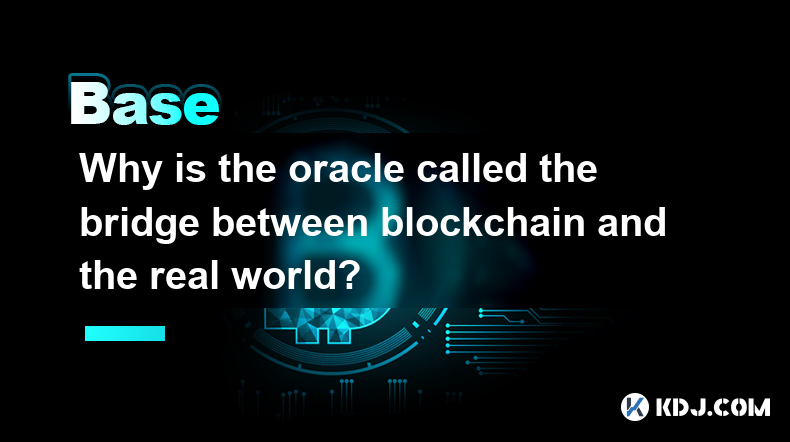
Why is the oracle called the bridge between blockchain and the real world?
Apr 04,2025 at 04:00am
The concept of an oracle in the cryptocurrency and blockchain world is crucial for understanding how these decentralized systems interact with external data. The oracle is often referred to as the bridge between blockchain and the real world because it serves as a vital intermediary that fetches, verifies, and transmits off-chain data to the on-chain en...
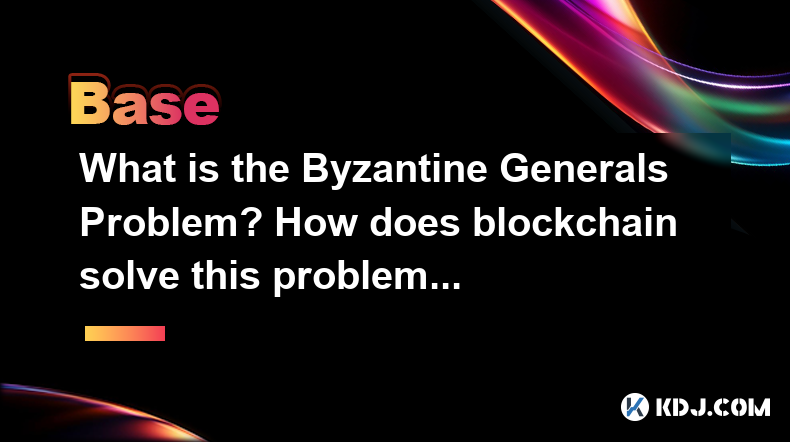
What is the Byzantine Generals Problem? How does blockchain solve this problem?
Apr 05,2025 at 06:29am
The Byzantine Generals Problem is a classic problem in the field of distributed computing and computer science, which has significant implications for the reliability and security of decentralized systems, including blockchain technology. This problem is named after a hypothetical scenario involving several generals of the Byzantine army who must coordi...
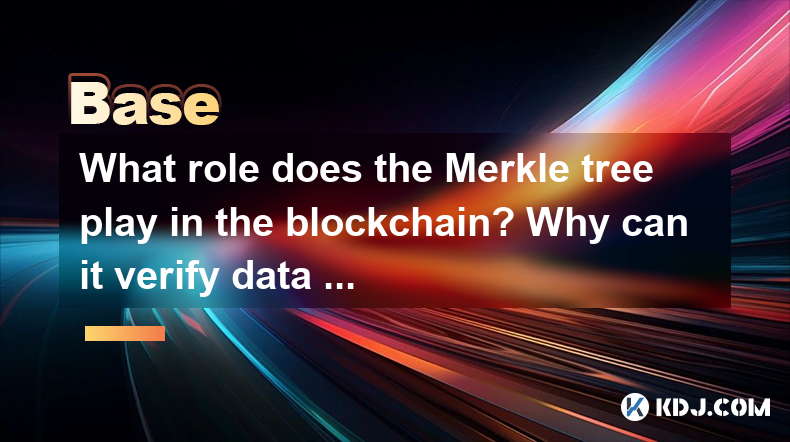
What role does the Merkle tree play in the blockchain? Why can it verify data integrity?
Apr 04,2025 at 01:29pm
The Merkle tree plays a crucial role in the blockchain, primarily due to its ability to efficiently and securely verify data integrity. This article will delve into the structure of a Merkle tree, its implementation in blockchain, and how it ensures the integrity of data. Understanding the Structure of a Merkle TreeA Merkle tree, also known as a hash tr...
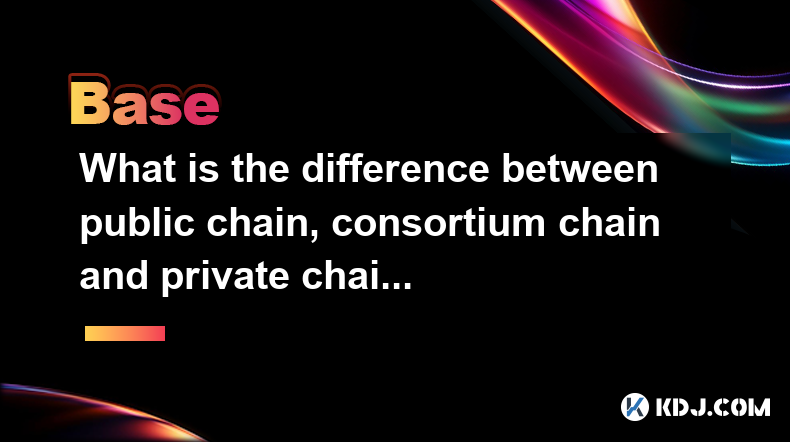
What is the difference between public chain, consortium chain and private chain? What scenarios are suitable for each?
Apr 04,2025 at 09:21pm
In the world of blockchain technology, understanding the differences between public chains, consortium chains, and private chains is crucial for selecting the right type of blockchain for specific applications. Each type of blockchain has its own unique characteristics and use cases, which we will explore in detail. Understanding Public ChainsPublic cha...
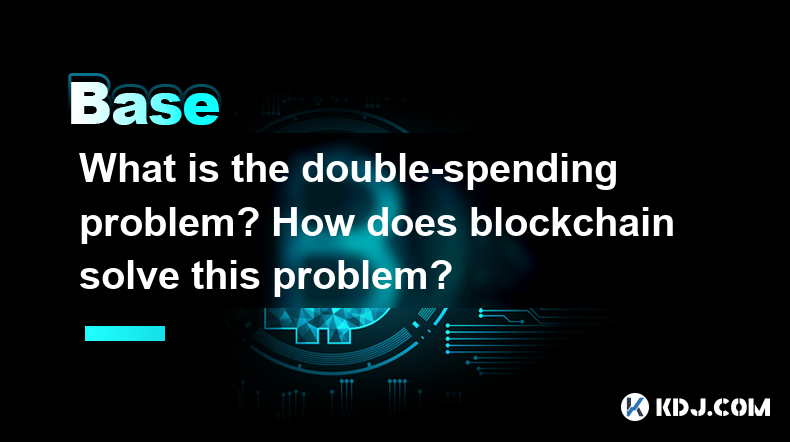
What is the double-spending problem? How does blockchain solve this problem?
Apr 04,2025 at 09:07am
The double-spending problem is a significant challenge in the realm of digital currencies. Double-spending refers to the potential for a digital currency to be spent more than once. This issue arises because digital files, unlike physical cash, can be easily duplicated. If not addressed, double-spending could undermine the integrity and trust in any dig...
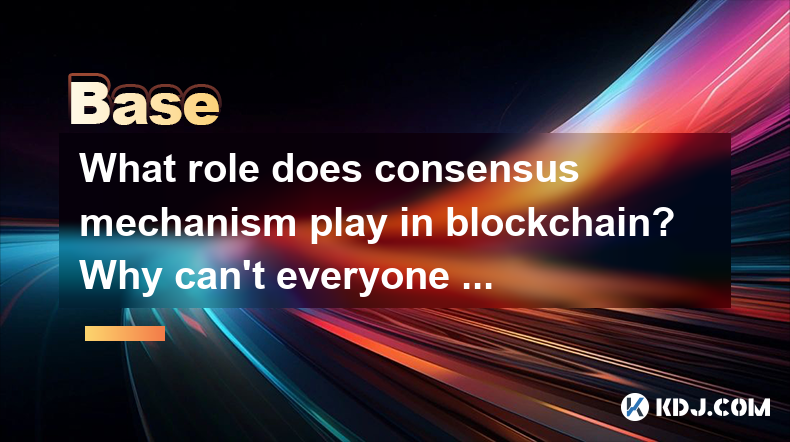
What role does consensus mechanism play in blockchain? Why can't everyone keep accounts?
Apr 05,2025 at 12:29am
The consensus mechanism is a fundamental component of blockchain technology, serving as the backbone for maintaining the integrity and security of the network. It ensures that all participants in the network agree on the state of the ledger, which is crucial for the decentralized nature of blockchain. Without a consensus mechanism, the decentralized sys...

Why is the oracle called the bridge between blockchain and the real world?
Apr 04,2025 at 04:00am
The concept of an oracle in the cryptocurrency and blockchain world is crucial for understanding how these decentralized systems interact with external data. The oracle is often referred to as the bridge between blockchain and the real world because it serves as a vital intermediary that fetches, verifies, and transmits off-chain data to the on-chain en...

What is the Byzantine Generals Problem? How does blockchain solve this problem?
Apr 05,2025 at 06:29am
The Byzantine Generals Problem is a classic problem in the field of distributed computing and computer science, which has significant implications for the reliability and security of decentralized systems, including blockchain technology. This problem is named after a hypothetical scenario involving several generals of the Byzantine army who must coordi...

What role does the Merkle tree play in the blockchain? Why can it verify data integrity?
Apr 04,2025 at 01:29pm
The Merkle tree plays a crucial role in the blockchain, primarily due to its ability to efficiently and securely verify data integrity. This article will delve into the structure of a Merkle tree, its implementation in blockchain, and how it ensures the integrity of data. Understanding the Structure of a Merkle TreeA Merkle tree, also known as a hash tr...

What is the difference between public chain, consortium chain and private chain? What scenarios are suitable for each?
Apr 04,2025 at 09:21pm
In the world of blockchain technology, understanding the differences between public chains, consortium chains, and private chains is crucial for selecting the right type of blockchain for specific applications. Each type of blockchain has its own unique characteristics and use cases, which we will explore in detail. Understanding Public ChainsPublic cha...

What is the double-spending problem? How does blockchain solve this problem?
Apr 04,2025 at 09:07am
The double-spending problem is a significant challenge in the realm of digital currencies. Double-spending refers to the potential for a digital currency to be spent more than once. This issue arises because digital files, unlike physical cash, can be easily duplicated. If not addressed, double-spending could undermine the integrity and trust in any dig...

What role does consensus mechanism play in blockchain? Why can't everyone keep accounts?
Apr 05,2025 at 12:29am
The consensus mechanism is a fundamental component of blockchain technology, serving as the backbone for maintaining the integrity and security of the network. It ensures that all participants in the network agree on the state of the ledger, which is crucial for the decentralized nature of blockchain. Without a consensus mechanism, the decentralized sys...
See all articles





















































































